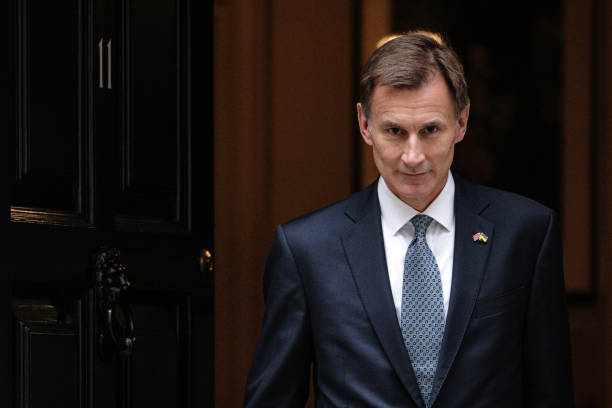To compete with US green subsidies, we need to end punitive windfall taxes

We must end windfall tax: it harms the renewable energy industry, and we risk losing out on innovation because of it, writes Jim Wright
Building an energy system in any market requires consideration of three key factors. First, the cost of energy. Second, the security of energy supply. And third, reducing the carbon footprint or CO2 emissions of the energy we use.
In Europe and the UK, in the last 20 years, there has been a growing focus by regulators and policymakers on cutting CO2 emissions. But, simultaneously, there has been little focus on the cost and security of energy.
Following Russia’s invasion of Ukraine last year, the ramifications of this imbalanced approach to energy are now clear to see.
In some senses, Europe’s energy crisis has been far less severe than many anticipated. A mild winter and record temperatures in some parts of the continent helped ease the pressure on supply, pushing down costs and hitting commodity prices. And consumers, both industrial and domestic, acted and responded in kind by reducing their energy usage.
Equally, gas storage was sufficiently topped up over the summer – but this was only because Russian gas kept flowing into Europe. This has since stopped and eventually winter will roll around again.
Government attention has therefore pivoted to become laser focused on the cost and security of the UK’s energy supply. The good news is that renewable energy sources offer a cheap, secure and carbon-free alternative. Building a wind or solar farm is significantly less cost intensive than a new offshore gas field, despite supply chain disruption increasing the cost of renewables recently. Such infrastructure provides a domestic, secure energy supply as most renewables are not at the mercy of unpredictable geopolitical considerations.
In the US, the Inflation Reduction Act is a significant piece of legislation that provides a clear pathway for the energy transition. Much ink has been spilled on how Europe will respond, and it seems that EU initiatives to try and incentivise renewable energy sources are coming. But in the UK we have so far only seen rhetoric, limited political will, and solutions which are unfit for purpose.
Take the government’s decision to impose windfall taxes on all energy companies. Windfall taxes on upstream oil and gas are one thing, but windfall taxes on renewable energy – without the ability to offset for capital expenditure investment – are incredibly disappointing.
The UK has a massive potential advantage here and could become a world leader in offshore wind through its scale and expertise, especially in the North Sea. But an unconstructive policy environment leaves investors wondering: if the government can move the goalposts once, will they do it again?
The UK’s competitive position could be lost as international investors look at the windfall taxes without capex offsets and turn elsewhere – namely to the US.
The Inflation Reduction Act creates a hyper-productive environment for investment. A significant part of the IRA is onshoring and convincing companies to grow in the US. US policymakers appreciate that if you do not keep innovation close to home, you risk losing out. And if the UK does not grasp this fact, it won’t just be investment it loses, but jobs and expertise too.
National Grid – a transmission grid which is better than most national or state-level energy grids – talks about its partnership with educational institutions to support the build out of the UK grid. But fundamentally, if prospects for the sector are better elsewhere, we risk a UK green energy “brain drain”.
Clearly, to turn around our prospects, we need an end to windfall taxes – especially those with no exemption for capital expenditure. Extending these taxes to renewable providers will only discourage international investment.
We also need a return to consistent leadership from government and the promise of a stable policy agenda. We keep being told that net zero has broad support across the political spectrum in the UK, but actual results in terms of incentives have been haphazard.
The UK is in a global race to power the future. If we do not make our own market attractive to investment – whether through funding, skills, training, incentives or regulation – we risk an exodus of skills and talent to other global markets.
How we power our economy in the future is being decided now. If the last 12 months have taught us anything, it is the importance of being able to control our own affordable and sustainable energy supply. Now is the moment for policymakers to double down on renewables and make the UK a global leader in clean energy.
